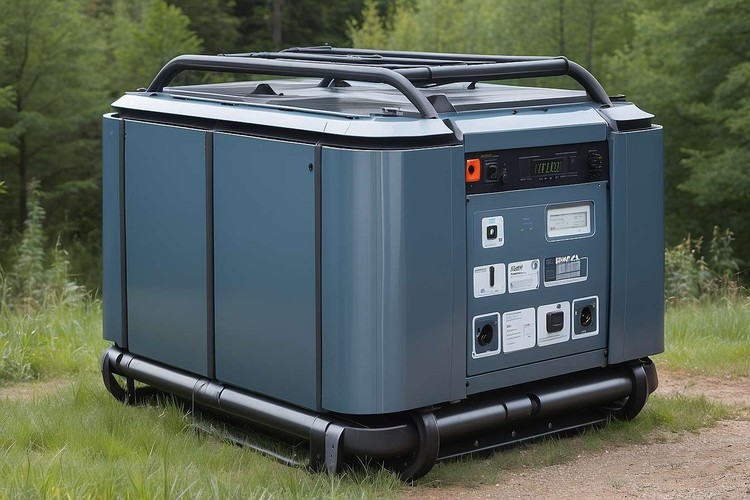Understanding Portable Power Stations: Your Guide to Reliable Backup Energy
In today's increasingly mobile and technology-dependent world, access to reliable power sources is more critical than ever. Portable power stations have emerged as a versatile solution for those seeking on-the-go energy or emergency backup power. This article will explore the ins and outs of portable power stations, their applications, and how they can benefit you in various situations.

What exactly is a portable power station?
A portable power station is a rechargeable battery-powered device designed to provide electricity when traditional power sources are unavailable. Unlike gas-powered generators, these units are silent, emit no fumes, and can be safely used indoors. Typically featuring multiple output ports, including AC outlets, USB ports, and DC ports, portable power stations can charge and power a wide range of devices and appliances.
How do portable power stations work?
Portable power stations utilize lithium-ion batteries to store electrical energy. They can be charged via various methods, including wall outlets, car chargers, or solar panels. Once charged, the stored energy can be used to power devices through the station’s output ports. An inverter within the unit converts the stored DC power to AC power, allowing you to plug in and use standard household appliances.
What are the key benefits of using a portable power station?
One of the primary advantages of portable power stations is their versatility. These devices can be used in numerous scenarios, from camping trips and outdoor events to emergency home backup during power outages. They’re also environmentally friendly, producing no emissions or noise pollution. Additionally, portable power stations require minimal maintenance compared to traditional generators, making them a convenient and reliable power solution.
What types of devices can be powered by a portable power station?
Portable power stations can support a wide array of devices and appliances, depending on their capacity and output capabilities. Common items that can be powered include:
-
Smartphones and tablets
-
Laptops and computers
-
CPAP machines
-
Small refrigerators
-
LED lights
-
Televisions
-
Power tools
-
Small kitchen appliances
It’s important to note that the specific devices you can power will depend on the wattage output and capacity of your chosen portable power station.
What factors should you consider when choosing a portable power station?
When selecting a portable power station, several key factors should be taken into account:
-
Capacity: Measured in watt-hours (Wh), this determines how much energy the station can store.
-
Output power: Measured in watts (W), this indicates how much power the station can deliver at once.
-
Port types and quantities: Ensure the station has the right ports for your devices.
-
Size and weight: Consider portability based on your intended use.
-
Charging options: Look for versatile charging methods, including solar compatibility.
-
Brand reputation and warranty: Choose a reputable manufacturer with good customer support.
How do portable power stations compare to traditional generators?
Portable power stations offer several advantages over traditional gas-powered generators:
| Feature | Portable Power Station | Traditional Generator |
|---|---|---|
| Noise Level | Silent operation | Noisy |
| Emissions | No emissions, environmentally friendly | Produces exhaust fumes |
| Fuel Source | Rechargeable battery | Gasoline or propane |
| Indoor Use | Safe for indoor use | Not safe for indoor use |
| Maintenance | Minimal maintenance required | Regular maintenance needed |
| Portability | Generally lighter and more compact | Often heavier and bulkier |
| Initial Cost | Higher upfront cost | Lower initial investment |
| Operating Cost | Lower long-term operating costs | Ongoing fuel costs |
Prices, rates, or cost estimates mentioned in this article are based on the latest available information but may change over time. Independent research is advised before making financial decisions.
While portable power stations typically have a higher upfront cost, they often prove more economical in the long run due to their lower operating costs and minimal maintenance requirements. They’re also more versatile in terms of where they can be used, making them an excellent choice for both indoor and outdoor applications.
In conclusion, portable power stations offer a clean, quiet, and versatile solution for backup power and on-the-go energy needs. Whether you’re an outdoor enthusiast, a digital nomad, or simply looking for peace of mind during power outages, a portable power station can provide the reliable energy you need. By considering your specific power requirements and usage scenarios, you can select the perfect portable power station to keep your devices charged and your life powered, no matter where you are.




